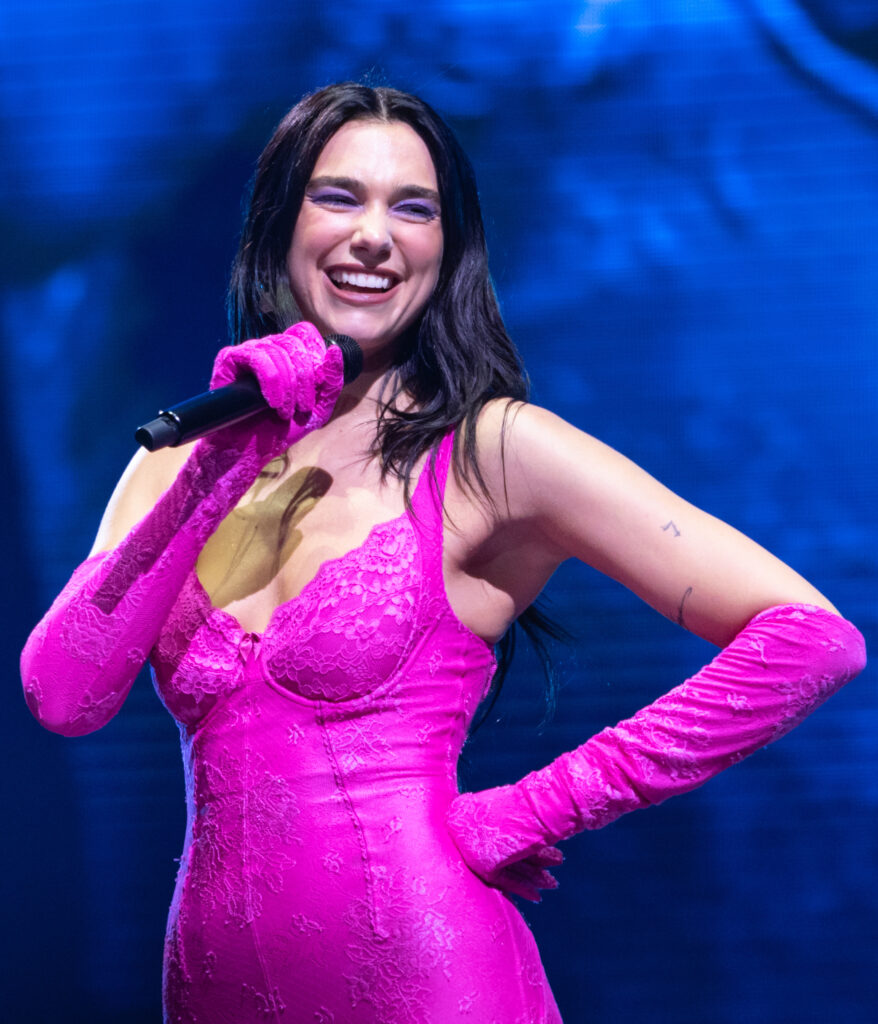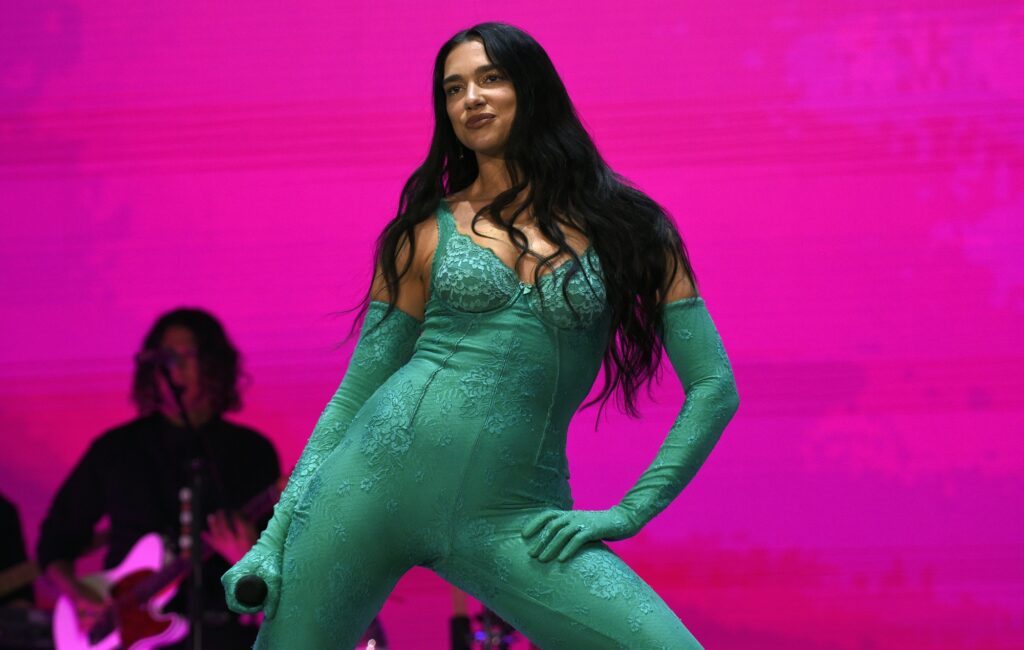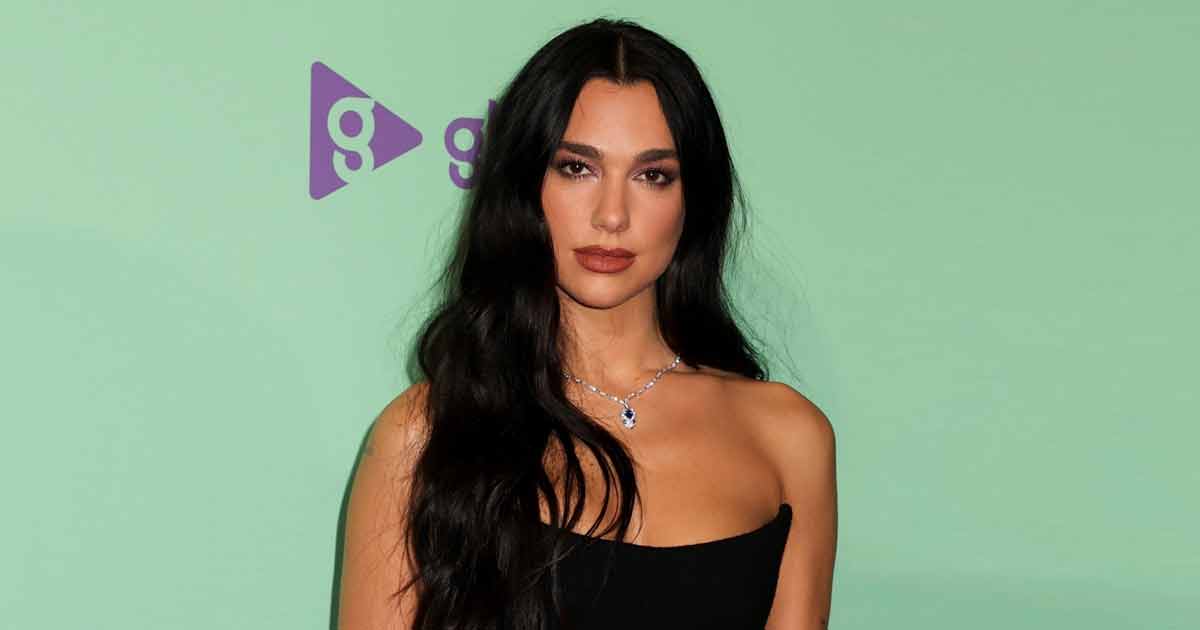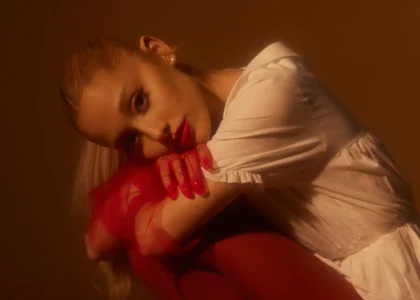LET’S GET THIS OUT OF THE WAY RIGHT NOW: Dua Lipa is currently working on her third studio album. Lipa’s album is set to be released in 2024, and despite the trend of musicians announcing and then delaying albums for years, she will almost certainly meet her deadline. It’s amusing to consider a pop star — or any successful young artist — to be just another hardworking professional. But, at 27, Lipa has already established herself as the type of multihyphenate entrepreneur who not only completes her assignments on time, but also discusses strategy and efficiency with the clarity of a company founder delivering a TED Talk. “If I wasn’t as organised as I am, I would be a mess right now,” she says as we meet on a drizzly May afternoon in London. The singer had asked one of her favourite restaurants, Sushi on Jones, hidden on the second floor of a King’s Cross concert venue, to open before dinner so we could have the entire place to ourselves, then arrived 10 minutes early to ensure everything went smoothly.
You probably won’t remember that Lipa’s second album, “Future Nostalgia,” leaked at the start of the lockdowns, denying her the precise rollout she’d spent months finessing, postponing her international tour… and unintentionally cementing her as the pandemic’s leading pop star.
Her barrage of shimmery singles — music for “dance crying,” as she describes it — later established her as the only female artist with two albums with more than 10 billion Spotify streams.
She says the next record will still be pop, lest her “fans have a meltdown.” She doesn’t want to “alienate” them, but she’s working on a new sound that might be influenced less by the house and disco beats beneath songs like “Physical” and “Hallucinate” and more by 1970s-era psychedelia. She’s working with a smaller group of songwriting collaborators, rumour has it, including Kevin Parker of the Australian psych-rock band Tame Impala, which she denies: “I don’t know what you’re talking about,” she says, then looks away and laughs a little. Lipa is dressed in pop star-off-duty drag: Ugg slippers, baggy white jeans, an old Elton John T-shirt, and a few diamond-encrusted hoops in each ear. She can come across as guarded, aloof, cool but not necessarily cold, which could be her personality her entire life — or the result of becoming globally famous during a period of deep isolation.

She lacks the desire to make unnecessary small talk or feign friendliness in order to appear likeable, which is common among people her age. Instead, she stays steadfastly on message, implying several times that she believes journalists are usually attempting to trap her or tease out information before she is ready to share it. “When you’re in the public eye, someone is always waiting for you to trip or fail or whatever,” she says. During our meal, which was planned to last 90 minutes and end exactly on time, she uses the word “whatever” frequently, making her sound wary of having to narrate her own life.
But she’s especially tight-lipped about the upcoming album not only because it’s still in the works — a process she describes as “insular and exciting,” even if “you have no idea what the reaction is going to be once it’s out, so there’s this nervous feeling” — but also because there’s so much else she’s prepared to discuss today: not herself, not the music, but the other components of Lipa’s unusual plan for longevity, something she’s AFTER HER TOUR ENDED IN NOVEMBER, Lipa returned to London and began focusing on several non-music projects, including cooking and relaxing in the house she’s renovating in North London, near where she was raised by her parents, Albanian immigrants Dukagjin and Anesa Lipa. They’d fled Kosovo during the region’s conflicts in 1992, then returned to the capital, Pristina; four years later, they let their eldest daughter (Dua, whose name means “love” in Albanian) move back to England by herself when she was 15, where she briefly modelled and began to pursue music: After appearing in a 2013 commercial for “The X Factor,” she signed with Lana Del Rey’s manager, Ben Mawson.
Here in London, where she lives with her parents, younger brother (Gjin, 17), and sister (Rina, 22, an aspiring model), she enjoys eating vegetable samosas at Gymkhana and drinking orange wine at Westerns Laundry. Among her friends, who, she says, “ignore me in my own kitchen,” she’s the one who plans birthday dinners and trips. Many of these restaurants and destinations wind up in Service95, the arts and culture newsletter she launched last February after wanting a place to write about the bakeries, bookstores, and other venues she’d been keeping lists of since she was a teenager.
She’s currently working on the third season of her podcast, “Dua Lipa: At Your Service,” which is a companion to Service95 and features interviews with fellow artists like Billie Eilish and Dan Levy; queer activists like Brandon Wolf, who fights for gun reform after surviving the 2016 Pulse nightclub shooting in Orlando, Fla.; and writers like Min Jin Lee and Esther Perel (as well as Hanya Yanagihara, this magazine’s editor in chief). She concludes each conversation by asking for a list of recommendations, whether it’s for Los Angeles restaurants (Levy) or activists to follow (Wolf); her hope, she says, is to be of service to her readers and listeners, many of whom were likely born around 1995, when she was, hence the reference to her age.

She started a Service95 book club earlier this summer, and her first selection was Douglas Stuart’s “Shuggie Bain” (2020), a gay coming-of-age story set in working-class Glasgow. Lipa also co-designed a fashion collection with Donatella Versace, which included butterfly-print bikinis and floral stretch dresses. Its theme was La Vacanza, Italian for “vacation,” mirroring Lipa’s dominant, if slightly ironic, Instagram aesthetic, in which she appears to do nothing but relax by a pool.
Not long after, she’d appear as a mermaid in Greta Gerwig’s “Barbie,” a fitting acting debut given that it’s based on a doll who’s a former teenage fashion model and can switch between her many demanding professions in a single afternoon. “I don’t even want to show you my phone because I’m embarrassed about it,” Lipa says, then opens her calendar app, frowns, and eventually turns the screen in my direction. “Wake up, glam, prep for podcast,” she says, scrolling through her schedule. “I have to watch ‘Succession,’ so I’ve got to schedule that,” she adds, pointing to the 7 p.m. time slot, when she’ll also eat dinner. She even plans her showers, scheduling them whenever she can. “I’ll keep making music as long as I’m having fun,” she says. “But why can’t I do other things I enjoy?”
IF THE DREAM OF BECOMING A POP STAR IS OUT OF REACH FOR ALL BUT A FEW, the musical aspect of Lipa’s empire is, oddly, the least distinctive: She collaborates with some of the world’s greatest audio minds and businesspeople to release catchy, inspirational who-needs-men anthems with her husky voice and relatably imperfect dance moves. All of them have chosen to invest millions of dollars in producing and promoting her earwormy singles not only because she is talented, beautiful, and has good sonic instincts, but also because, unlike most of her predecessors and peers, she is not sloppy.
“I’ve probably spent more time waiting for artists to show up in the studio than I have working with artists,” says Mark Ronson, a 47-year-old record producer who has collaborated with Lipa on two singles, including “Dance the Night” this summer. “If she’s two minutes late — literally, if it’s 12:02 — she receives a text that says, ‘Sorry, running five minutes late.'” You know what I mean? That’s not superstar behaviour. She is still under the impression that she hasn’t [made it] yet.” Lipa is especially good at editing, he says, working and reworking a chorus or melody. She is adept at making quick decisions and multitasking: She says she sometimes thinks about what she’s going to eat after her choreography while she’s onstage.
Of course, all of these decisions are hers to make — she owes the public nothing more or less than she chooses. Still, it’s fascinating, if not novel, to see a celebrity build a brand around her own interests and obsessions rather than allowing her private life to become an interest and obsession of others. We’ve expected pop stars (and indeed all female artists) to bare all — to reference their mental health struggles (Lady Gaga) or their partners’ cheating scandals (Beyoncé) — only to judge and punish them for doing so since the dawn of Madonna. Lipa refuses to participate on that level. Her music, too, avoids the strange dissonance of other female artists (Taylor Swift, Adele) who have achieved success by exposing everyday secrets and sadnesses, only to have their music belittled.
Lipa refuses to sing about such Easter eggs: “I think it’s a marketing tool: How confessional can you be?” she asks. “I don’t also put so much of my life out there for people to dig into the music in this weird, analytical way.”
She promises that the next album will be “more personal,” but that’s not why she’s doing it. Lipa had been rewatching “How Can You Mend a Broken Heart,” a 2020 documentary about the Bee Gees, two days before we met for sushi, “just bawling my eyes out,” she says, with her boyfriend, Romain Gavras, a 42-year-old French Greek film director. (In fact, her relationship with Gavras is the only thing her publicist asked me not to bring up.)
Someone in the film mentions “music that just makes your body feel good,” she explains. “Those are the songs that I get attached to — that’s the kind of feeling I want to convey.” As a singer, she has already demonstrated her ability to evoke such feelings. But as she continues to speak, I notice that the simple act of recommending a movie I haven’t seen is making her happy as well. “You should definitely watch it,” she says, interrupting her own music-related thoughts. “It’s incredible. “Every time, I cry.”









